Iran says new US sanctions target Iranians' access to food, medicine
The United States imposes a new round of sanctions on Iran
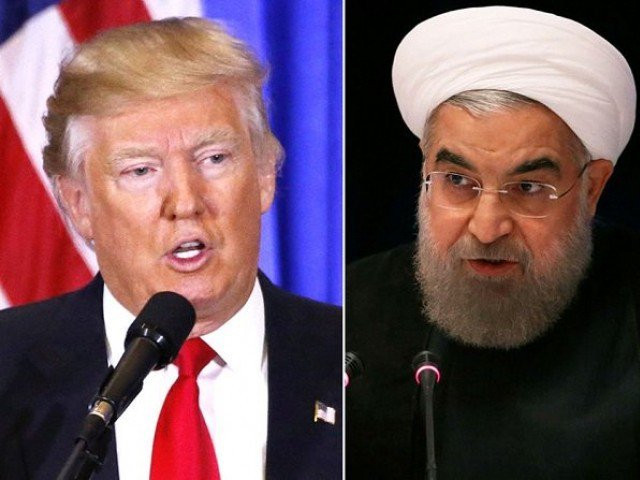
US President Donald Trump and Iranian President Hassan Rouhani. PHOTO: FILE
The United States on Friday imposed a new round of sanctions on Iran, some aimed at its central bank and sovereign wealth fund, following attacks on oil facilities in Saudi Arabia that Riyadh and US officials have blamed on Iran.
Iran denies involvement in the attacks, which initially halved oil output from Saudi Arabia. Responsibility was claimed by Yemen’s Houthi movement, an Iranian-aligned group fighting a Saudi-led alliance in Yemen’s civil war.
Media visits wrecked Saudi oil plant, Iran vows to strike back if attacked
“This is a sign of US desperation. When they repeatedly sanction the same institution, this means their attempt at bringing the Iranian nation to its knees under ‘maximum pressure’ has failed,” Foreign Minister Mohammad Javad Zarif told reporters in remarks shown on state television.
“But this is dangerous and unacceptable as an attempt at blocking the Iranian people’s access to food and medicine,” Zarif said, speaking after arriving in New York for the annual UN General Assembly next week.
Meanwhile, there were reports on social media that a number of Iranian servers and websites — including those of some petrochemical firms — were under a cyber-attack. There was no immediate official comment, and the websites of the main state oil company NIOC appeared to be functioning normally. Residents said their internet access was not affected.
NetBlocks, an organisation that monitors internet connectivity, said its data showed “intermittent disruptions” to some internet services in Iran starting from Friday evening.
America’s dangerous game against Iran
But the group said the impact was limited, affecting only specific providers, and the cause was unclear. “Data are consistent with a cyber-attack or unplanned technical incident on affected networks as opposed to a purposeful withdrawal or shutdown incident,” it said in a tweet.
The fresh sanctions target the Central Bank of Iran, which was already under other US sanctions, the National Development Fund of Iran — the country’s sovereign wealth fund and an Iranian company that US officials say is used to conceal financial transfers for Iranian military purchases.
Zarif said he would meet on Wednesday with foreign ministers of the remaining signatories to the 2015 nuclear accord, which was agreed with Britain, France, Germany China and Russia as well as the United States.
“As we have said before, the United States can only attend if it returns to the (nuclear accord) ... and ends its economic war against Iran,” Zarif said.
The United States withdrew from the accord last year and re-imposed unilateral sanctions on Iran.
“I hope the US government realises that they are no longer the only economic superpower in the world and that there are many countries that want to benefit from the Iranian market,” Foreign Ministry spokesman Abbas Mousavi said, according to state media.



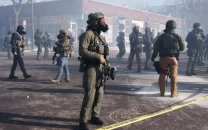
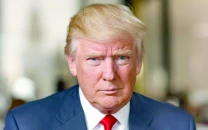
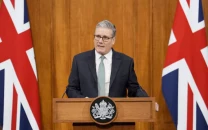
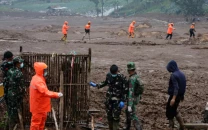












COMMENTS
Comments are moderated and generally will be posted if they are on-topic and not abusive.
For more information, please see our Comments FAQ